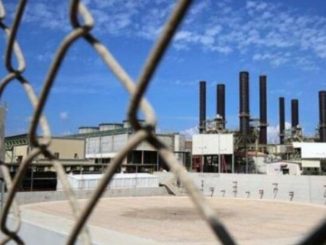
The move is seen as part of Israel’s strategy to expand settlements in the occupied West Bank.
Israel announced on Wednesday the cancellation of the disengagement law in the northern occupied West Bank, therefore allowing illegal Jewish settlers to return to three former settlements they were prohibited from entering since the 2005 evacuation order.
This announcement coincided with Spain, Norway, and Ireland officially recognizing the state of Palestine.
The move is seen as part of Israel’s strategy to expand settlements in the West Bank, which is envisioned to be part of a future independent Palestinian state along with the Gaza Strip.
What is the disengagement law?
The disengagement law, enacted in 2005, involved Israel withdrawing from settlements in the Gaza Strip and parts of the northern West Bank under then-Prime Minister Ariel Sharon, following successive military losses.
The withdrawal, however, did not extend to all West Bank settlements.
Despite its political implications, the disengagement law does not recognize the Gaza Strip or the West Bank as Palestinian lands, claiming them as Israeli territory.
However, Israel saw disengagement as necessary to maintain a demographic majority in its territory.
Israeli Defense Minister Yoav Gallant announced plans to change the law allowing Israeli settlers evicted in 2005 as part of the disengagement plan to return to equestrian settlements on the occupied West Bank pic.twitter.com/o0oAZMI3z7
— Sprinter infofactory (@Sprinter00000) May 22, 2024
Which are the settlements involved?
The settlements involved are Sa-nur, Ganim, and Kadim, which are located near the northern occupied cities of Jenin and Nablus
Last year, an amendment allowed settlers to re-enter a fourth settlement, Homesh, also located in the northern West Bank.
This amendment eliminated the previous requirement for Israeli army permission to enter the settlements.
Knesset approval
In March 2023, the Israeli parliament (Knesset) adopted an amendment to the 2005 disengagement law, repealing the ban on entering the area.
For the law to come into effect, however, it needed an order by the Israeli defense minister.
At the time, the minister only allowed visits to a fourth settlement, Homesh. The amendment permitted entry and visitation, but not resettlement.
Additionally, the military could still prevent settlers from entering, citing security concerns.
The EU spokesperson Peter Stano has denounced the Israeli Knesset's decision to repeal articles from the 2005 Disengagement Law, allowing illegal settlers to return to four illegal West Bank settlements that were evacuated in 2005. pic.twitter.com/vJoOHpjCa6
— PALESTINE ONLINE 🇵🇸 (@OnlinePalEng) March 22, 2023
How many settlers are in the West Bank?
There are no specific figures related to settlers returning to the four settlements.
Currently, approximately 451,000 settlers live in 132 settlements and 147 outposts in the occupied West Bank.
Additionally, about 230,000 settlers reside in East Jerusalem, according to the Israeli Peace Now organization.
How did Palestinians react?
The Palestinian Resistance movement denounced the move in a statement, calling it a “continuation of the occupation’s policies of aggression and settlements”.
The statement reiterated that the decision “infringes on the Palestinian people’s rights in their land.”
Hamas also called on people in the West Bank to “intensify confronting the occupation’s settlement policies.”
Settlers on the Move: ‘Season of Blessing’ Turns Bloody in the West Bank
For his part, Mustafa Barghouti, Secretary-General of the Palestinian National Initiative Party, slammed the decision as “an act of revenge”.
Barghouti added that the move is evidence of the Israeli government’s extremist and fascist tendencies, highlighting confusion and the perceived failure of the Zionist movement.
(PC, AJA)








